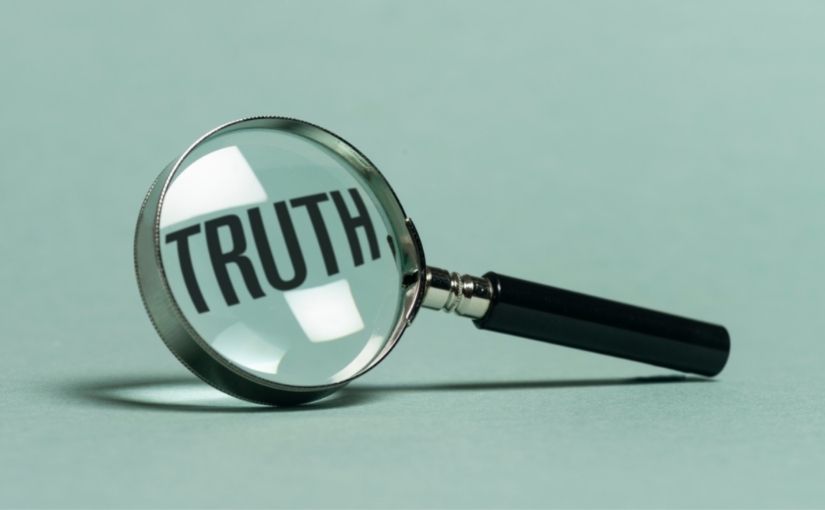It’s More Than Just a Game Show
by Rev. Dave Klingensmith, Church of the Palms UCC
I have always enjoyed the game show “To Tell the Truth.” I’ve seen it through several different versions, even was at a taping in NYC once. It has always been fun for me to try to decide, along with the panelists, who is really the one contestant sworn to tell the truth.
Most of us learned from a young age that it was important to tell the truth. Those who raised us drilled it into us. “Don’t lie, tell the truth.” We may have learned it in Sunday School. The Ninth Commandment specifically forbids lying in terms of bearing false witness or what is called perjury today. And though we may have been told that a “little white lie” is sometimes OK, almost all cultures and religions discourage lying of any sort.
But while we are often quick to tell someone else to “tell the truth,” we often don’t like to hear the truth, or face the truth, about ourselves or someone else. Some time ago I discovered in doing some genealogy research that my paternal great-grandfather had committed suicide in the early 1900’s when some investments went bad. It was shocking and surprising. Often families don’t want to face the truth when this happens. People often don’t want to face the truth that a family member is LGBT, or that someone has a mental illness. These days using Ancestry.com or other websites, sometimes people may discover that they have siblings they never knew they had, or even that they may not be the race or nationality they thought they were. Doing other historical research might lead us to discover that our families owned slaves or took land from indigenous people.
It can be hard to face up to this. We may want to brush it under the rug, to tell ourselves “That was a long time ago.” But by doing so we deny ourselves a significant, if challenging, part of our history. To acknowledge it may result in significant growth and even healing for us, and for the descendants of those who were wronged.
Likewise, the information we learned in school about our nation’s history may not always have been totally truthful. I learned about the Japanese attack on Pearl Harbor but didn’t learn until much later how we put Japanese-American U.S. citizens in internment camps. We learned about the Civil War and slavery, but textbooks downplayed the cruelty inflicted on slaves, and how our entire society capitalized on the backs of people who were bought and sold. We have often glossed over how even Christian missionaries treated Native Americans as “savages.”
Telling the truth about our nation’s history, especially in regard to racial issues, is important. The term “Critical Race Theory” is an explosive one right now. I would argue for a different term – Critical Race History – or even just Telling the Truth About Our History. When we do not acknowledge painful or troubling events or try to say they have no relevance today, we are denying the humanity of someone’s great-great grandparent who was a slave. We may have to tell the truth, that someone we may have admired was really a brutal plantation owner or a ship owner who transported slaves from Africa.
When school districts, or states, maybe even religious groups, try to deny painful parts of our history, we all lose. We lose the opportunity to acknowledge the truth, to admit our complicity in that history, and to see how we can do something today to atone for the past.
We can tell the truth about our history so that injustices don’t happen again. If we don’t tell the truth and acknowledge injustices, we can expect to repeat them.
